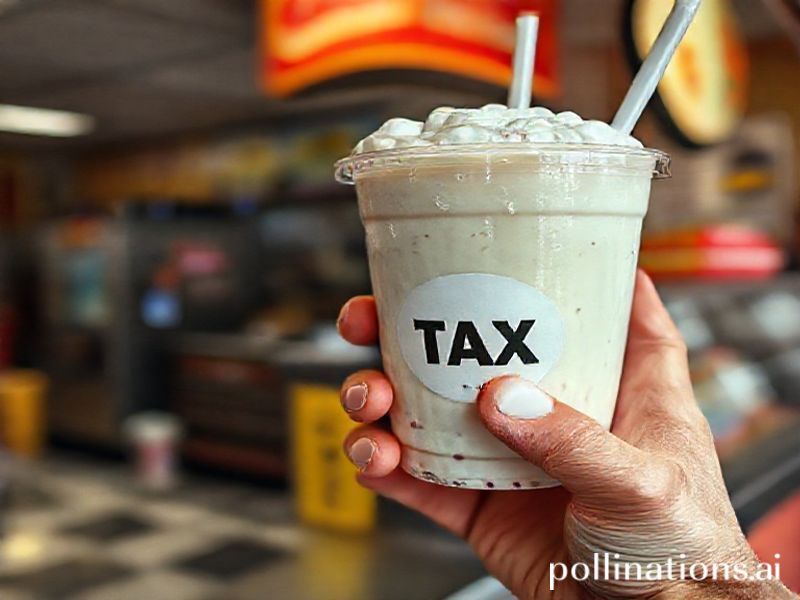Milkshake Tax: The Sweet, Sticky, and Slightly Controversial Trend Sweeping the Globe
**Title: “Milkshake Tax: The Sweet, Sticky, and Slightly Controversial Trend Sweeping the Globe”**
Alright, folks, buckle up! We’re diving headfirst into the creamy, frothy world of the “milkshake tax,” the latest trend that’s got everyone from fast-food fans to fiscal policy wonks buzzing. You might be thinking, “A tax on milkshakes? That’s ridiculous!” And you’re not wrong. But neither is the idea of a pineapple on a pizza, and look how far we’ve come with that debate. So, let’s break down why this sweet, sticky topic is trending globally and why you should care.
**The Scoop on the Milkshake Tax**
First things first, what even is a milkshake tax? In essence, it’s a proposed or implemented tax on sugary drinks, including milkshakes, aimed at curbing obesity and promoting healthier lifestyles. The idea isn’t new—several countries and cities have experimented with “sugar taxes” for years. But the term “milkshake tax” has recently gained traction, thanks to a combination of political discourse, social media chatter, and a dash of good old-fashioned internet humor.
**Cultural Context: The Sweet and the Bitter**
The milkshake tax trend is a delicious mashup of public health concerns, political posturing, and internet culture. In the UK, the idea gained momentum after the Conservative Party proposed a tax on sugary drinks to fund school breakfast clubs. Across the pond, the U.S. has seen similar debates, with some cities and states implementing their own versions of sugar taxes.
But why milkshakes? Well, they’re the poster child for indulgence—creamy, sweet, and oh-so-satisfying. They’re also a cultural icon, representing everything from retro diners to fast-food nostalgia. Plus, let’s be real, who doesn’t love a good milkshake meme?
**Social Impact: Stirring the Pot**
The milkshake tax debate has sparked a wave of social commentary and online banter. On one hand, proponents argue that it’s a necessary step to combat obesity and promote healthier eating habits. On the other, critics see it as an overreach of government control, a nanny state gone wild.
Social media has been abuzz with memes, tweets, and hot takes, from people joking about the “war on milkshakes” to serious discussions about public health policy. The trend has even inspired some creative protests, like people posting pictures of themselves with giant milkshakes, defiantly sipping through straws.
**Why It Matters: The Bigger Picture**
At its core, the milkshake tax trend is about more than just a sugary drink. It’s a microcosm of larger societal debates—about health versus personal freedom, about the role of government in our lives, and about the power of the internet to shape and amplify these discussions.
It’s also a reminder of the power of language and framing. By calling it a “milkshake tax” instead of a “sugar tax,” the debate takes on a different tone, a different flavor, if you will. It’s more relatable, more approachable, and definitely more meme-worthy.
**Conclusion: The Last Sip**
So, where does the milkshake tax trend go from here? Who knows! But one thing’s for sure—it’s a trend worth watching, worth debating, and definitely worth a chuckle or two. Whether you’re a fan of the idea or think it’s a slippery slope to a world where the government dictates our dessert choices, there’s no denying that the milkshake tax is a sweet, sticky, and slightly controversial topic that’s here to stay—for now, at least.
And hey, if nothing else, it’s given us a great excuse to enjoy a milkshake or two. Just don’t tell the taxman.







